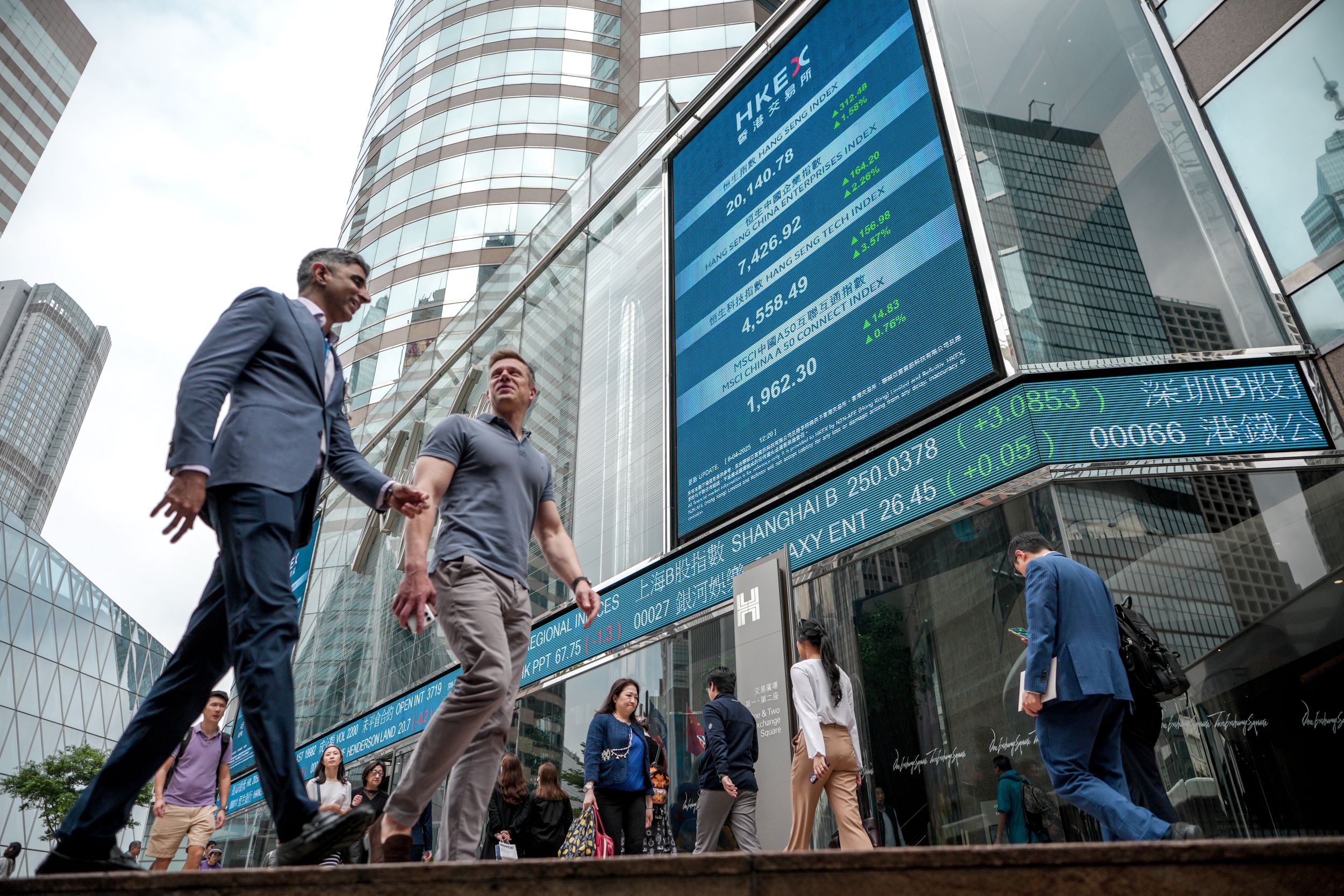
Amid the current asset market volatility sparked by tariff levies and changes in the international trade environment, Hong Kong’s financial system remains stable and still performs its function as a hub linking the financial markets of the Chinese mainland with those of other countries, according to Hong Kong Monetary Authority Deputy Chief Executive Darryl Chan Wai-man.
“The deposits in the entire Hong Kong banking system have been on an upward trend as deposits increased 7.1 percent last year. The Hong Kong dollar has even been strengthening recently since demand for the currency is still relatively large for both the real economy and the capital market,” Chan said in a media interview.
In terms of capital adequacy or liquidity coverage, the performance of Hong Kong’s banking system in these two indicators is clearly higher than the international benchmark.
ALSO READ: Chan: HK sees surge in foreign investment amid US tariff uncertainty
“The world's 29 so-called systemically important banks all have a presence in Hong Kong. In addition, more than 70 of the world's top 100 banks also have operations in the city, and some of these banks have even established their Asia-Pacific headquarters in Hong Kong,” Chan added.
The HKMA deputy chief executive emphasized that Hong Kong’s $400-billion foreign exchange reserves provide very strong backing for the city’s currency peg system and the overall financial stability of Hong Kong.
The global assets market has exhibited strong volatility in recent days, as US President Donald Trump’s sweeping new tariffs announcement on April 2 sparked tremendous selloffs of risky assets around the globe.
Chan said that the changes in the international trade situation in recent years have led more Chinese mainland companies to embark on global expansion programs.
“These mainland enterprises are leveraging the unique advantages of the Hong Kong market to facilitate overseas market expansion. And this process also creates many opportunities for the Hong Kong financial industry, including to make better use of the role of the renminbi,” Chan said.
By the end of last year, 2,600 Chinese mainland companies had established their operations in Hong Kong, of which more than 730 were regional headquarters and regional offices.
In addition, many of State-owned enterprises and private companies on the mainland have established their own treasury centers in Hong Kong, for improving the efficiency and security of capital management by centralizing treasury operations in Hong Kong.
Chan said that Hong Kong’s offshore renminbi financing market can play an important role in cross-border trade financing.
READ MORE: HSI continues rebound as the impact of tariffs’ turmoil wanes
The outstanding amount of renminbi-denominated bond issuances has jumped 40 percent in the last two years, while renminbi-denominated bank loans have also increased nearly three times in the same period. About 75 percent of the world's offshore renminbi payment transactions are made through Hong Kong.
“It can be seen that in terms of real economic activities and financing activities, the offshore market's demand for renminbi is becoming more and more obvious, and Hong Kong still plays a very important role in this process,” Chan said.
Hong Kong is the world’s fourth-largest foreign exchange market, and is the world’s largest foreign exchange market in terms of renminbi exchange transactions.
He also said the HKMA has pledged to support the operation of the real economy and to maintain financial market stability and development.
“Amid the shadows of the tariffs war and trade war, we pledge to support the real economy through cooperating with the banking industry to assist enterprises in overcoming difficulties, adapting to new developments, improving their own capabilities, strengthening their innovation capabilities, expanding more overseas networks, and supporting their transformation,” Chan said.
ALSO READ: HK exporters impacted by US tariff hikes urged to explore new markets
Since the tariffs issue flared up earlier this month, the HKMA has organized meetings with industry representatives who are more exposed to the issue, including those in the trade, import and export, and the transportation sector.
“We stressed that the banks’ targeted financial support for these small and medium-sized enterprises will remain unchanged, as SMEs still account for a relatively large proportion of the overall employment in Hong Kong,” Chan said.


